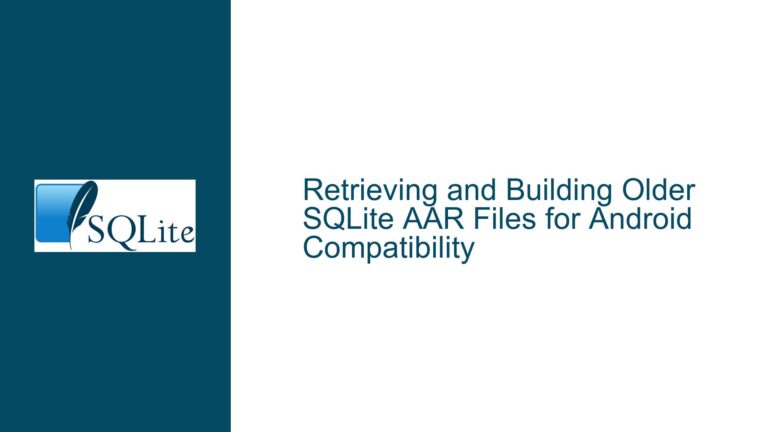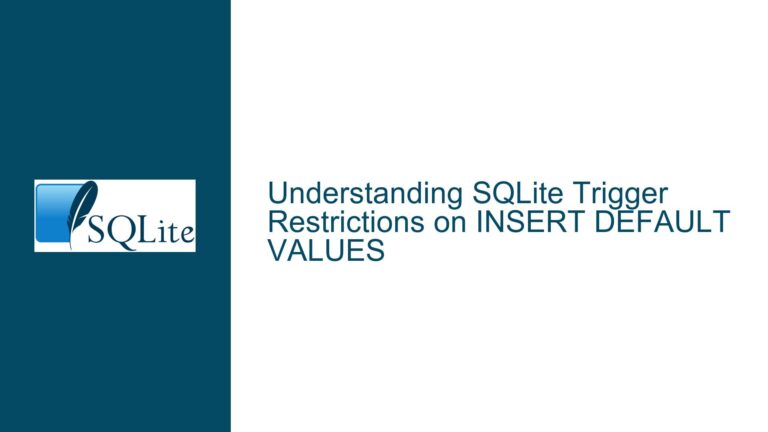SQLite ARMv7 Android NDK20 Atomic Store Load Issue
ARMv7 Android NDK20 Atomic Operations Failure The core issue revolves around the failure of SQLite to load on ARMv7 architecture when compiled with Android NDK20, specifically due to the inability to locate the symbol __atomic_store_4. This error manifests as a java.lang.UnsatisfiedLinkError during runtime, indicating that the dynamic linker cannot resolve the atomic operation symbols required…









